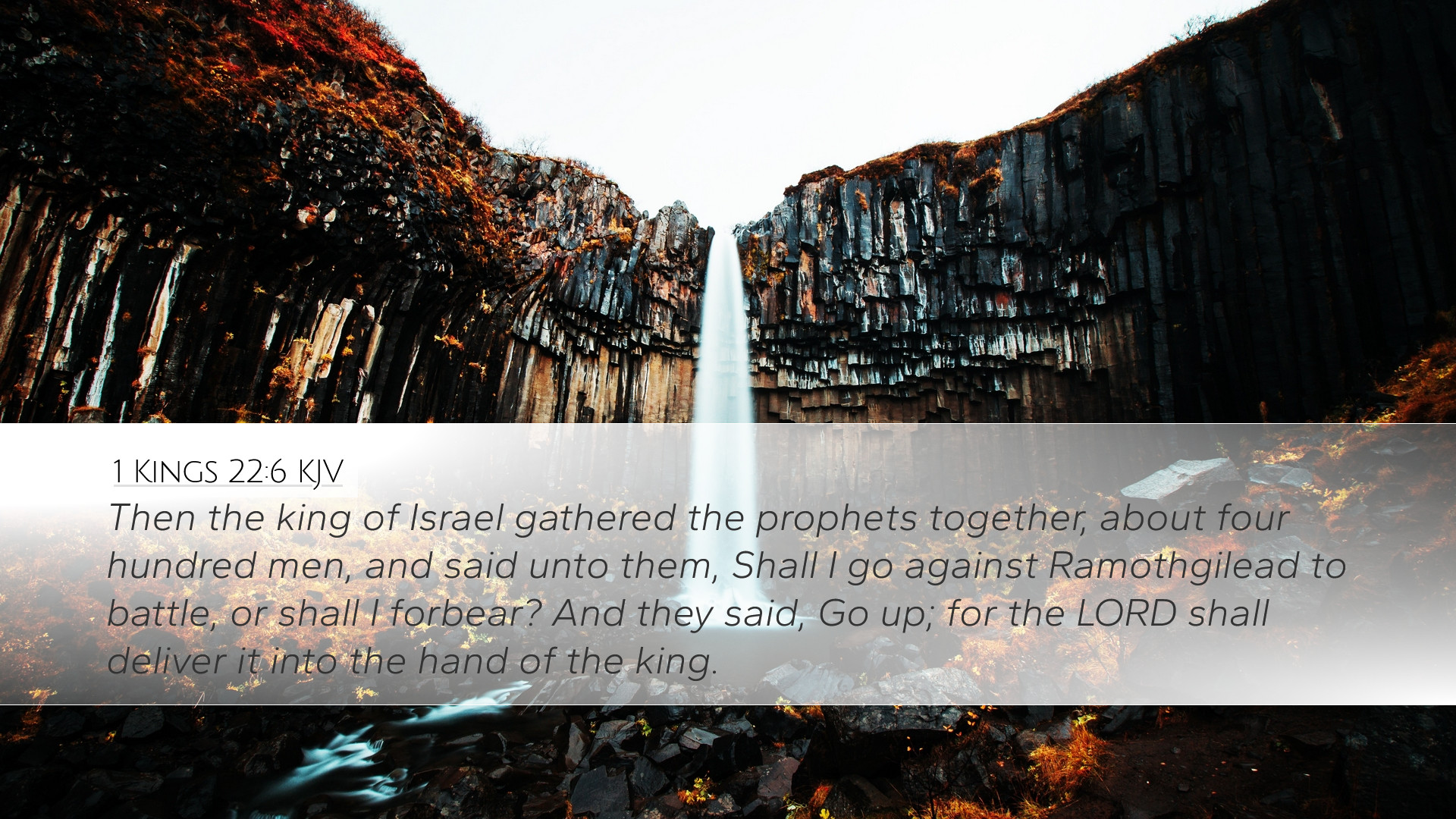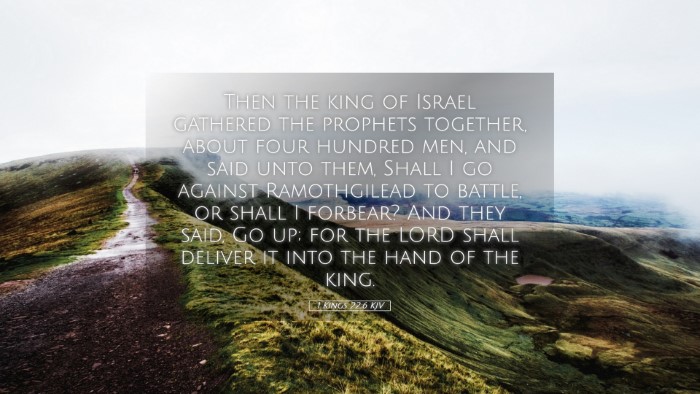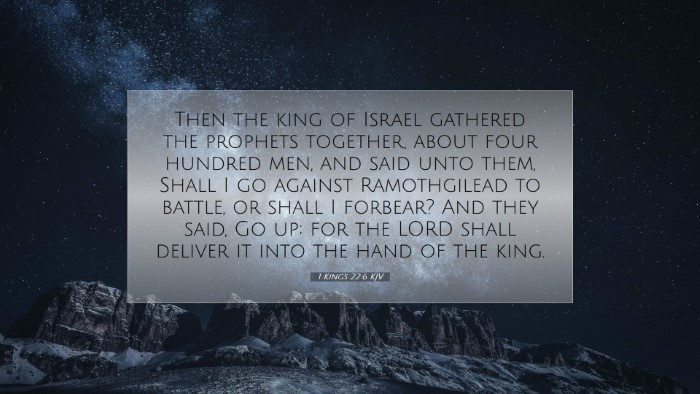Commentary on 1 Kings 22:6
Verse: "Then the king of Israel gathered the prophets together, about four hundred men, and said unto them, Shall I go against Ramothgilead to battle, or shall I forbear? And they said, Go up; for the Lord shall deliver it into the hand of the king."
Introduction
The context of 1 Kings 22:6 is crucial for understanding its implications and theological significance. This verse occurs at a pivotal moment when King Ahab seeks guidance from the prophets before embarking on a military campaign against Ramothgilead. The gathering of prophets illustrates both the political and spiritual climate of Israel at the time and sets the stage for a contrasting prophetic voice that will emerge through Micaiah.
Insights from Commentators
Matthew Henry's Commentary
Matthew Henry emphasizes the importance of divine guidance in decisions of national significance. He points out that Ahab's choice to consult prophets highlights his reliance on human counsel rather than seeking true guidance from God. The overwhelming support from the false prophets underscores the danger of hearing only what one desires to hear. Here, Henry notes the contrast between the quantity of prophets—400—and the quality of their message, which lacks genuine divine endorsement.
Albert Barnes' Notes
Albert Barnes further elaborates on the motivations behind Ahab's inquiry. He observes that Ahab, despite knowing the recent conflict regarding Ramothgilead, deliberately seeks the affirmation he craves. Barnes interprets the prophets' unqualified support for Ahab's military venture as a reflection of their own interests, suggesting they were more inclined to deliver favorable prophecies that would keep them in favor with the king. Barnes also critiques the reliance on consensus among prophets, noting that true prophecy often stands apart from popular opinion.
Adam Clarke's Commentary
Adam Clarke offers a detailed historical perspective on Ramothgilead, highlighting its strategic significance as a fortified city. He indicates that Ahab's question implies his desire for validation of a seemingly righteous cause—liberating captured territory. Clarke addresses the character of the prophets, suggesting that they were likely politically motivated individuals, often corrupt and more focused on pleasing Ahab than delivering God’s truth. He surmises that this vast assembly did not genuinely seek God's counsel but rather conformed to the king’s wishes.
Theological Themes
- The Nature of Prophetic Authority: The verse encapsulates a critical moment in understanding the legitimacy of prophetic voices. Both Henry and Barnes imply that true prophets, like Micaiah (who will be mentioned later), might face opposition from popular consensus.
- Human vs. Divine Counsel: A significant theme emerges regarding the contrast between human wisdom and divine instruction. The prophets may represent the ideological alignment with power rather than the moral and spiritual truth.
- Integrity of Leadership: Ahab's leadership is portrayed as flawed, illustrating how leaders may seek to affirm their decisions through manipulated counsel rather than pursuing God's will for clarity and guidance.
Application and Reflection
This passage invites readers, especially pastors and theologians, to reflect on the importance of distinguishing between true and false counsel in their ministries and decision-making processes. It challenges leaders to seek genuine guidance from God rather than conforming to popular or self-serving opinions.
Furthermore, the reliance on prophetic assurance challenges contemporary readers to critically evaluate the voices they align with in their spiritual journeys. The need for discernment is paramount, especially when faced with decisions that have far-reaching implications.
Conclusion
In summary, 1 Kings 22:6 encapsulates a moment of tension between divine guidance and human ambition. By examining insights from the commentaries of Matthew Henry, Albert Barnes, and Adam Clarke, one gains a richer understanding of the challenges faced by leaders in discerning God’s will amidst competing voices. This passage serves as a timeless reminder of the need for integrity, discernment, and the pursuit of true wisdom from God.


